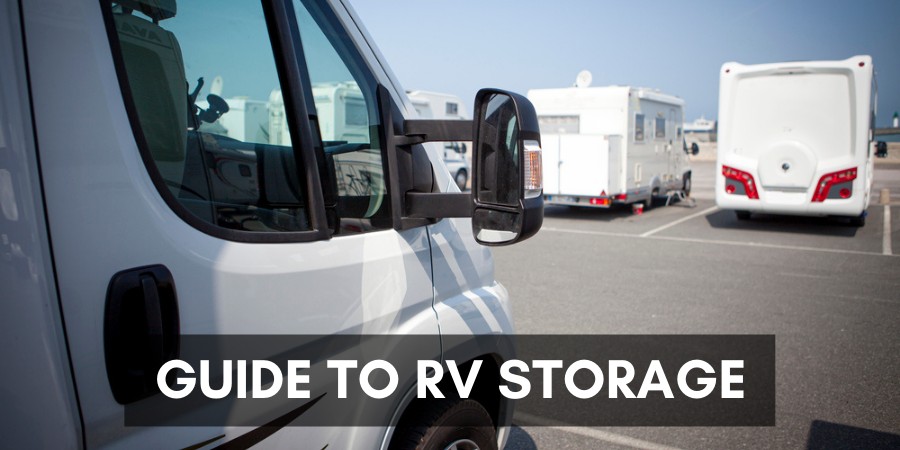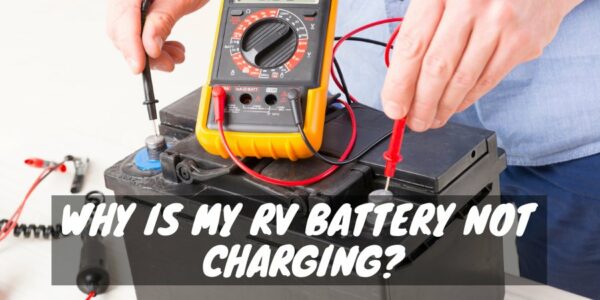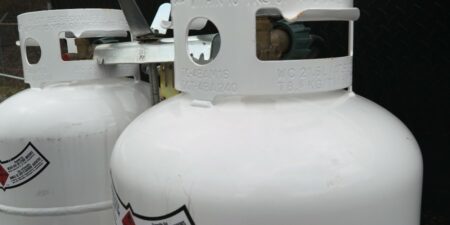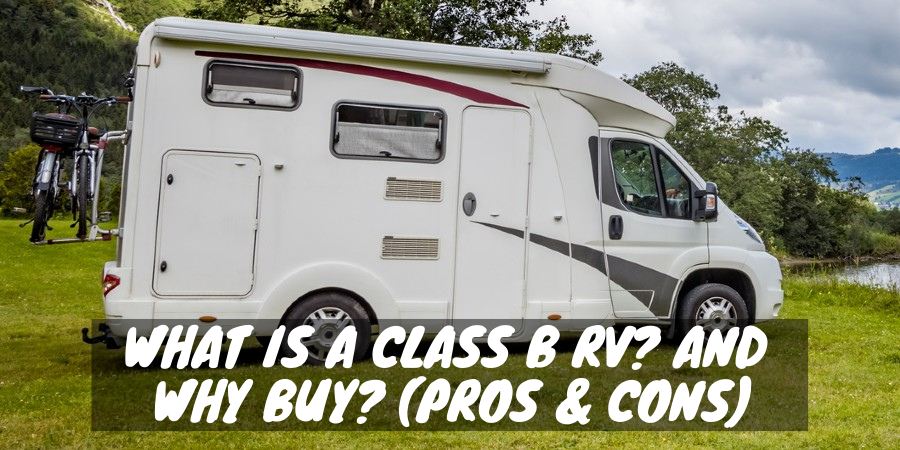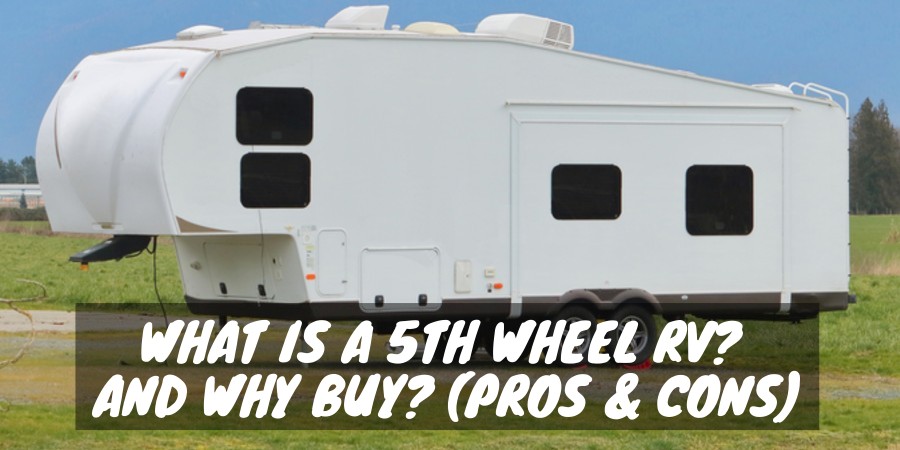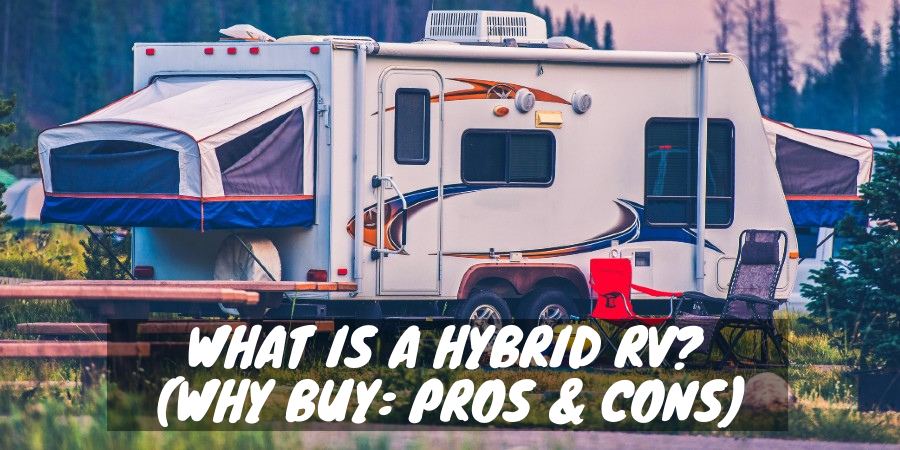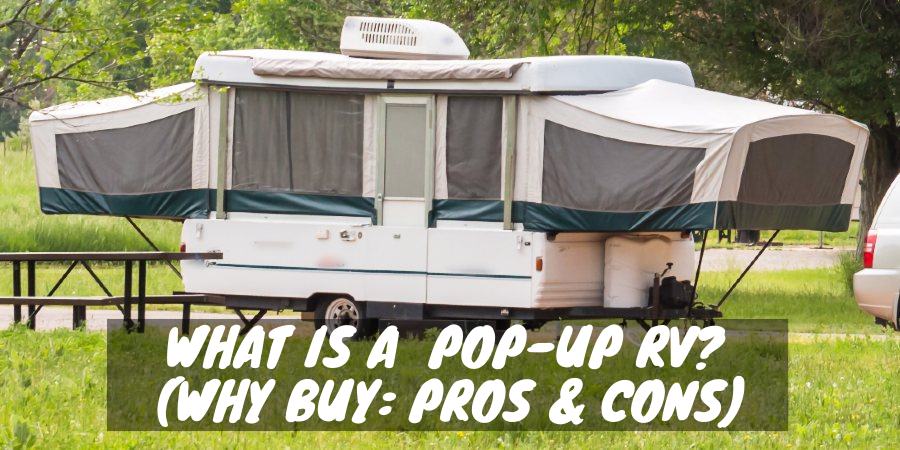An RV is great until you aren’t using it and don’t know where to park it. Most RV owners don’t have space, or HOA or city rules don’t allow them to park their camper in their garage or driveway, and they need to rely on outside sources for storage.
To help you understand your options, check out my RV storage guide below, which highlights the places you can park a camper during the off-season and the average cost.
Storage Yard: 3 Options for RV Long-Term Parking
There are plenty of storage facilities across the US that allow you to park your RV when not in use, such as:
Within a storage yard, you usually have the following three options for RV long-term parking.
1. Open Storage
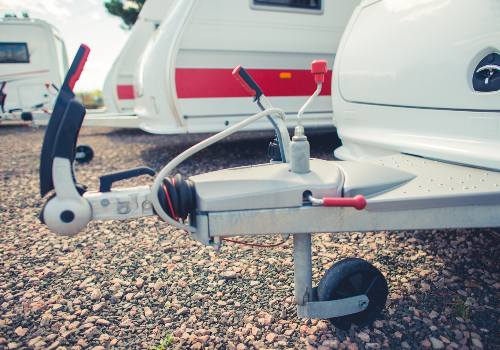
Cost: $40-$100 per month
Open storage is the most prevalent and least expensive RV storage option that a company will offer.
The storage company will likely put your RV in a grassy field parked tightly next to other RVs or boats.
If you plan to take your camper out regularly, you’ll need to set up a more accessible parking location with storage yard management.
2. Covered Storage
Cost: $80-$150 per month
If your budget allows, paying extra for covered storage under a rigid metal or wood roof can help maintain your RV’s value over open storage.
Covered storage can do wonders to deter damage to your RV’s roof, siding, vents, and air conditioning unit from harsh weather conditions.
3. Indoor Storage
Cost with power and climate control: $150-$400
Cost without power or climate control: $125-$300
Parking your RV indoors is the best way to prevent damage from the elements.
Finding available spots for large Class A motorhomes, long fifth-wheels, or travel trailers can be difficult. Shorter motorhomes and travel trailers are much easier to park indoors.
Do expect to pay more for a parking slot with climate control and power, so you don’t have to worry about your RV components freezing or baking in the heat.
Having power allows you to keep your expensive RV’s batteries on a trickle charge during the off-season, so they maintain their health.
Campground Storage
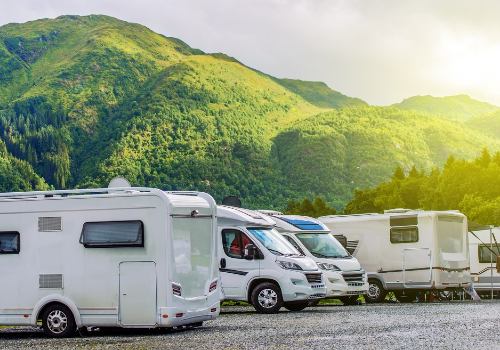
Newcomers to the RV world may be unaware that many campgrounds allow you to store your RV within the park during the off-season.
This option is best for RVers who camp at the same location each season and want to bypass the hassle of driving their camper a long way only to pay for storage at home.
Off Campsite
Cost: $25-$50 per month
An off-campsite campground RV storage space will generally be a field in a far-off section of the campground. Once you’re done camping for the season, you park your camper in this area and pick it up again once you’re ready to camp again.
On Campsite
Cost: $75-$200 per month
For seasonal campgrounds, it’s common for no one to rent campsites during certain times of the year, say in the winter up north or summer down south.
To keep some income flowing during this time, many private RV parks allow you to leave your RV on your campsite instead of paying to store it elsewhere. This option is very convenient if you plan to come right back to your favorite campsite each year.
5 RV Storage Tips
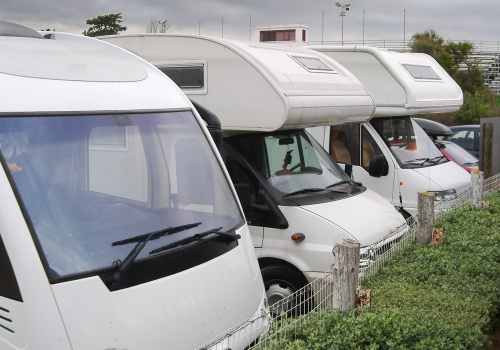
1. Do protect your tires if you plan to use an open field or any outdoor storage. High-quality tire covers and parking blocks can help prevent damage from UV rays, snow, mud, rain, or ice during your storage term.
2. Do leave some windows and vents open just a crack to allow air circulation. Any moisture trapped inside the camper for extended periods will grow mold and musty odors that are hard to eliminate.
3. Open all the interior cabinets or storage doors, and don’t forget to remove all traces of food that will attract pests.
Want to Connect With a Community of Over 1,078 RV Enthusiasts?
4. Do use DampRid or similar products to control humidity levels inside the RV.
5. Disconnect the house battery bank to prevent parasitic draining during storage. Better yet, remove the batteries and bring them home with you so you can store them in a safe, climate-controlled location.
Top 5 RV Storage Tips (Video)
Related Questions
1. What are the pros and cons of storing an RV at home?
Pros include convenience, no additional cost, and access to the vehicle anytime you need it. Cons include lack of sufficient space, the risk of damage from weather or theft, and potential violation of HOA or city rules.
2. How can one secure their RV while it’s in storage?
RV owners can secure their vehicles by using a high-quality RV cover, using a secure padlock on the RV doors, disconnecting the battery, and storing the vehicle in a reputable facility with surveillance and security measures in place.
3. Are there insurance options for stored RVs?
Yes, many insurance companies offer coverage for stored RVs. This coverage typically protects the RV from damage due to fire, storms, theft, and vandalism. It’s always important to check with your insurance provider for specific options and costs.
4. How often should I check on my RV during off-season storage?
It’s a good idea to check on your RV every 30-60 days if possible. This allows you to monitor the condition, ensure that there has been no damage or intrusion, and manage any potential issues early.
5. What steps should be taken to winterize an RV for storage?
To winterize an RV, you should drain and flush all water systems, add antifreeze to the plumbing system, remove any perishable food items, clean thoroughly to avoid attracting pests, and protect any areas susceptible to freezing. It’s also recommended to cover the RV with a breathable material to protect it from the elements.
"Man cannot discover new oceans unless he has the courage to lose sight of the shore."
-- Andre Gide

